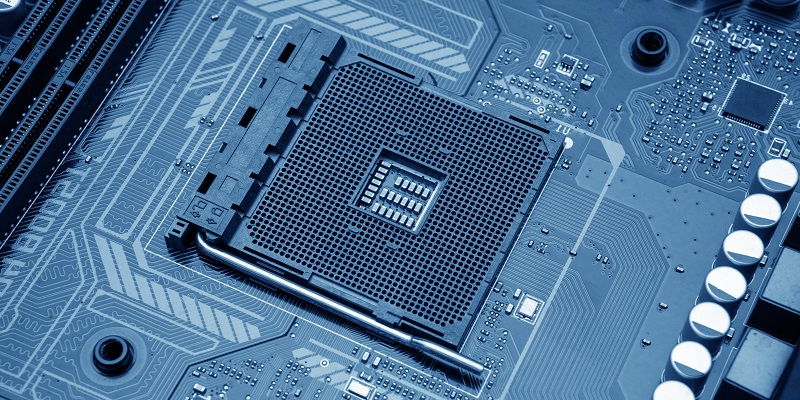Intel, the leading manufacturer of computer processors, is set to release the 14th generation of its popular Meteor Lake CPUs for desktops. As it prepares for the launch, the tech giant has been busy developing software support for its upcoming range. The latest sign that the release of the highly anticipated Meteor Lake-S is imminent comes from the recent addition of support in the upcoming Linux 5.3 Kernel. In this article, we will delve deeper into the recent developments in the Meteor Lake-S CPU family and what they mean for desktop users.
Support for Intel’s 14th Generation Meteor Lake-S desktop CPU
The latest update to the Linux kernel, version 5.6, adds support for the Meteor Lake-S SPI serial flash and a list of Meteor Lake-S PCI IDs to the driver list of supported devices. This is a significant development because Linux is widely used as the operating system for desktops and servers. The addition of support for Meteor Lake-S means that Linux users will have access to the latest CPUs from Intel as soon as they become available.
This update also means that developers will be able to optimize their software to take advantage of the new features in the Meteor Lake-S CPU family. As a result, users will experience improved performance and power efficiency when running applications on their desktops.
Evidence of a Meteor Lake release for desktops
There had been rumors circulating in the tech world that Intel may have cancelled the release of the Meteor Lake-S desktop family. However, recent developments have provided evidence to the contrary. The addition of support for Meteor Lake-S to the Linux 6.3 kernel, combined with other reports, reveals that Intel is indeed planning to launch the 14th generation of Meteor Lake processors.
Intel’s 800-series chipset platform
To get the most out of the Meteor Lake-S CPUs, Intel has also been developing the 800-series chipset platform. This platform will support at least two generations of CPUs, including Meteor Lake-S and Arrow Lake-S. The Meteor Lake-S lineup will offer several SKUs, which are variations of the CPU with different specifications and features.
Intel Alder Lake-S Desktop SKUs
In addition to the Meteor Lake-S lineup, Intel is also preparing to launch its Arrow Lake-S Desktop SKUs in several configurations. It is expected that the Arrow Lake-S CPUs will be more budget-friendly options that offer reliable performance and power efficiency.
Confirmation of Meteor Lake-S desktop CPUs
Intel has confirmed that it is testing the 14th Generation Meteor Lake-S CPUs and reports of the chips already being sampled. This adds further evidence that the Meteor Lake-S family is heading for a desktop launch. Intel’s own confirmation and testing of the CPUs mean that the company is putting significant effort into developing the next generation of CPUs for desktop users.
There is no release timeline currently available for the Meteor Lake-S and Raptor Lake-S CPUs
Intel is targeting a 2024 launch for its first 14th Gen Meteor Lake-S Desktop CPUs. This release timeline will give Intel ample time to test and optimize its CPUs before releasing them to the public. In the meantime, users can look forward to the upcoming release of Raptor Lake-S chips, which are set to come with clock speeds of up to 6.2 GHz and will be available for desktops in 2H 2023.
Intel’s latest developments suggest that the company is committed to delivering the next generation of CPUs for desktop users. The support for the 14th Gen Meteor Lake-S Desktop CPUs on the Linux 5.3 Kernel is a significant milestone and provides further evidence of the upcoming release. With the added support, developers can start optimizing their software for the new CPUs, improving performance and power efficiency in the process. Overall, the future looks bright for Intel and its continued innovation in the CPU space.

